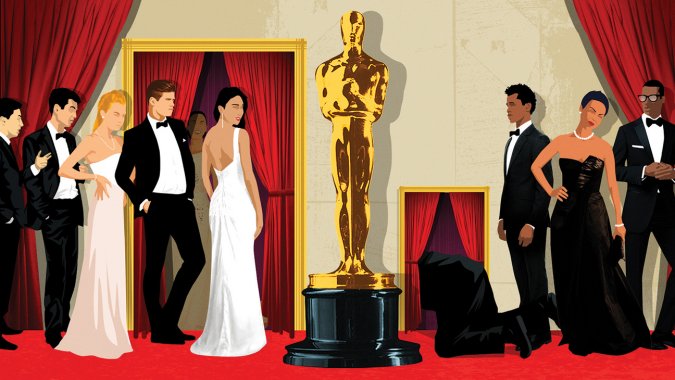Lack of minorities in Oscars reflects larger issues
Proposed by Jada Pinkett Smith, many Americans will boycott the 2016 Academy Awards (The Oscars) that are scheduled to take place on Sunday, February 28. For the second year in a row, all of the Oscar nominees in the acting categories are white Americans. The lack of diversity has awakened minority communities along with many communities of white Americans as people realize that this act of exclusion is an issue that addresses problems beyond the Oscars.
For a second year in a row, great pieces of cinematic work have been ignored. Concussion, a film starring Will Smith, who has yet to receive an Oscar after several Oscar worthy performances, effectively tells the story of Dr. Bennet Omalu, a forensic pathologist who fought the NFL while conducting his research on chronic traumatic encephalopathy. Although the movie has received a lot of attention, it failed to be nominated in the Best Picture category for the 2016 Oscars. Over 80% of Oscar nominees are white and over 80% of Oscar winners are white. Blacks, Asians, Latinos, and other ethnicities combined make up less than 20% of the Oscar nominations.
Who votes for the nominees? Ninety-seven percent of academy members are white and 76% of them are men. The average age of members is 63 years old (The Atlantic). This affects which movies get recognized. The lack of diversity amongst the members promotes the lack of diversity amongst the nominees. The boycott will likely help expose the failings of the Academy and African American populations could help affect change more rapidly by keeping some of their over $1 billion dollars spent going to see movies(Target Market News) in their pockets and by insisting on seeing more diverse offerings. Latino communities could help themselves as well because they make up 17% of the U.S. population and a whopping 32% of frequent movie goers.(MPAA)
The problem may begin with the system. In order to become an Academy member you have to “demonstrate exceptional achievement in the field of theatrical motion pictures.” You also have to be sponsored by two current members within your qualified branch. This problem likely derives from behind the scenes. Blacks are underrepresented in the director’s chairs where they account for 6% of the directors of the top 600 films, according to an Annenberg study (Economist). There are only two black women nominated of the 600, Ava DuVernay who directed Selma being one
Most black films don’t get recognition unless blacks are depicted as slaves or servants. Hollywood doesn’t pay attention to films by minorities unless they are depicting themselves as a stereotype. This trend seems to suggest that the industry only values minority contributions when they are subservient or in support of the majority population and their stories. Twelve Years a Slave’s made close to $7 million and the Butler made over $24million on their respective opening weekends while a movie that depicted successful minorities like, An Oversimplification of Her Beauty barely got any attention. The movie Joy, the story of a white woman inventor who became a millionaire has been made but, to date there hasn’t been a Hollywood movie made about entrepreneur Madam C.J. Walker, the first black female to become a millionaire.
Though lacking diversity the last two years, the Oscars are taking action to improve their system. Starting this February, changes will begin which encourage diversity amongst the members and governance of the Oscars. They’ve created three new governor seats which will be nominated by the president and voted on by the board. These three seats will be filled by women and people of color. Though this doesn’t answer all of the problems, DuVernay tweeted at the Oscars that the reforms are “One good step in a long, complicated journey for people of color and women artists.”



Janet Carroll • Feb 8, 2016 at 6:37 pm
Great article Mikaela. Keep up the good work.